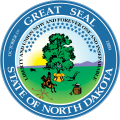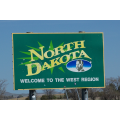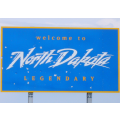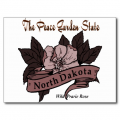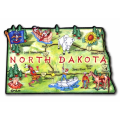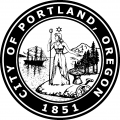After several years of work experience, many registered nurses (RNs) choose to seek out career advancement opportunities. In many cases, this requires earning a higher degree. The master of science in nursing (MSN) is the most popular choice. Several of North Dakota’s premier universities offer highly regarded MSN programs, including University of North Dakota, North Dakota State University, and University of Mary.
Nursing is a lucrative and in-demand profession. In fact, the Bureau of Labor Statistics reports that the U.S. is home to more than 2.7 million registered nurses (RNs). This figure is expected to increase by 19 percent over the next decade. To join this fast-growing field, many aspiring RNs choose to enroll in a bachelor of science in nursing (BSN) program.
Overview of the BSN degree
In just two years, an associate’s degree in nursing (ADN) program can prepare students for initial nursing licensure. North Dakota has two types of prelicensure associate’s degree programs: one for aspiring registered nurses (RNs) and one for aspiring licensed practical nurses (LPNs).
RN associate’s degree programs
Licensed practical nurses (LPNs) perform a number of vital tasks in hospitals, extended care facilities, and other healthcare settings. They monitor blood pressure and other vitals, change bandages, insert catheters, help patients bathe and dress, keep accurate medical records, and discuss care with patients and their family members. LPNs typically perform these duties under the supervision of registered nurses (RNs) or physicians.
LPN pathways
The all-in cost of nursing school includes more than just tuition, books, room, and board. Other important expenses include move-in start-up costs (like dormitory accessories or utility deposits), school and laboratory supplies, and of course transportation to and from campus. Many of these costs will vary significantly based upon the type of school and the length of program that the student chooses.
A private college or university does not receive the state government funding available to a public school. As a result, private nursing schools are more expensive than their public counterparts. They carry several distinct advantages, however. Because of their independence, private nursing programs can offer more rigorous coursework and classrooms with fewer students. Professors at private colleges typically have impressive backgrounds that are rich with personal academic achievements.
North Dakota is home to approximately ten public colleges and universities that offer programs for aspiring registered nurses (RNs) and/or licensed practical nurses (LPNs). Public nursing schools carry several distinct benefits. Most notably, they are significantly less expensive than their private counterparts because they are partially funded by the state government. Despite these cost differences, North Dakota’s public schools offer the same nursing degrees and certificates as private schools.
Healthcare professionals in Salem, Oregon, are well paid. The city’s certified nursing assistants (CNAs) earn a median annual income of $26,800, while licensed practical nurses (LPNs) are paid roughly $45,000 per year. Salem’s registered nurses (RNs) do even better, earning in excess of $75,000 annually. Local advanced practice registered nurses (APRNs), who must hold a graduate degree, routinely earn $95,000 and above. Employment figures show ample room for growth over the coming decade.
Overview of Salem’s nursing programs
Portland is home to the state of Oregon’s largest medical center, Oregon Health & Science University Hospital. This facility is ranked regionally and nationally, and it provides a framework of resources and infrastructure for surrounding nursing institutions. The hospital is part of the larger Oregon Health & Science University (OHSU), which offers baccalaureate, master’s, and doctorate degree programs on a wide array of nursing topics.
Portland degree programs
Registered nurses (RNs) are the backbone of the U.S. nursing profession. Oregon’s RNs must obtain either an associate’s degree in nursing (ADN) or a bachelor of science in nursing (BSN). This rigorous training distinguishes them from licensed practical nurses (LPNs) and certified nursing assistants (CNAs), who need only earn a certificate.
RN training

